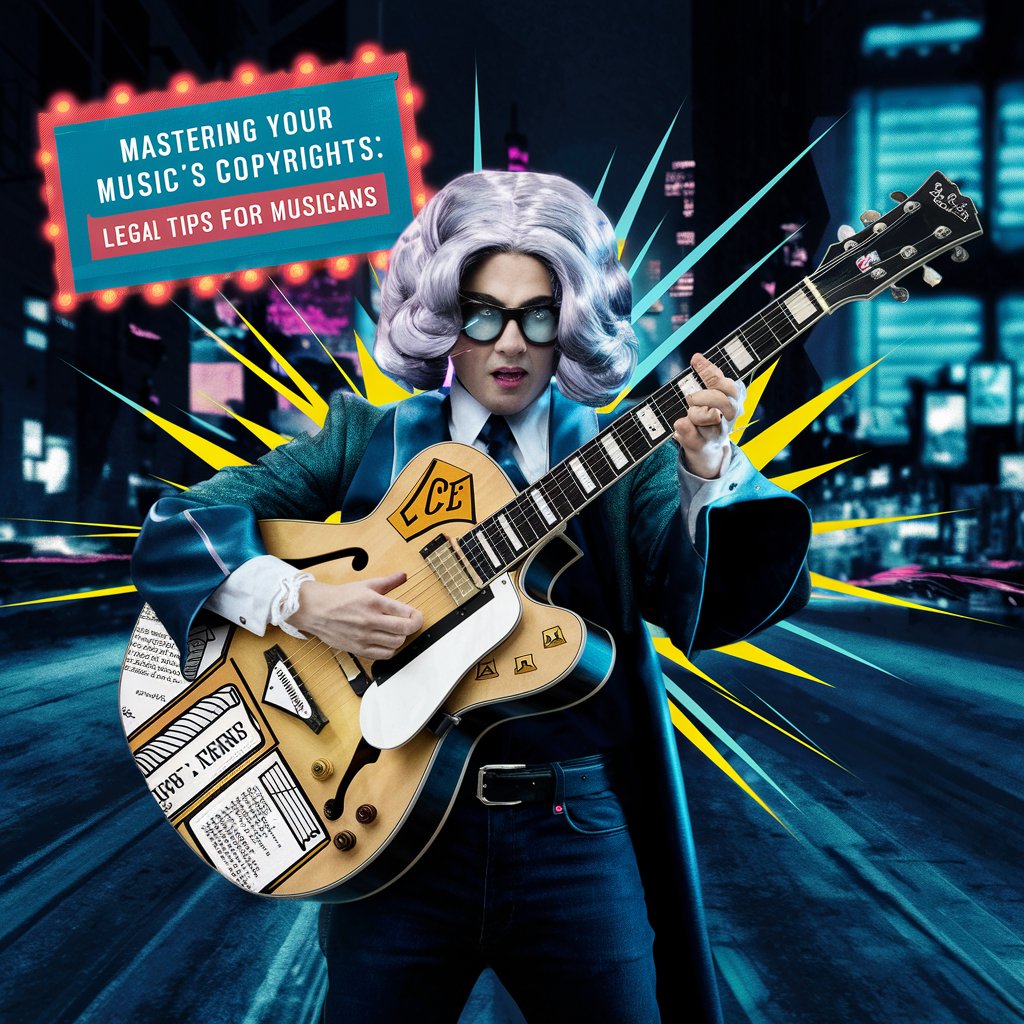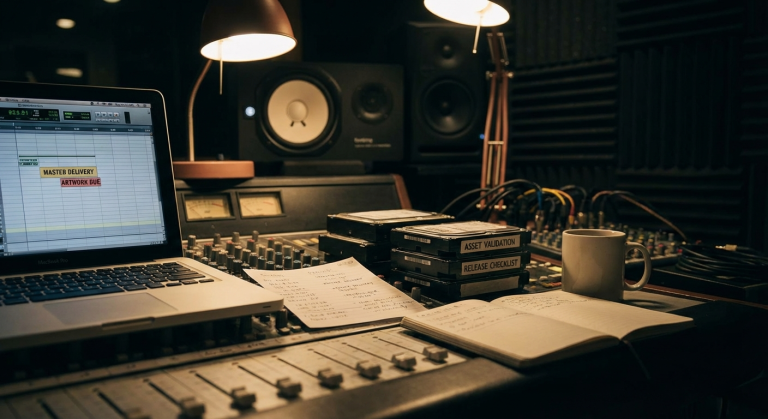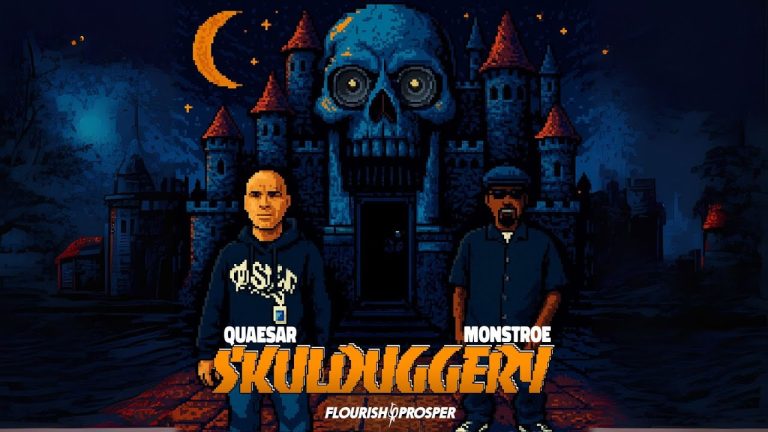Understanding Music Copyright Laws
Concept of Music Copyright Laws
Music copyright laws are a set of regulations designed to protect the rights of creators of original musical pieces. These encompass a variety of forms, including songs, symphonies, or any other musical compositions. When a person creates a new musical work, they instantly obtain legal rights over it. This means that they have the exclusive authority to reproduce, distribute, and perform their work publicly.
Copyright protection ensures that the creator has financial control over their work and can earn income through sales, performances, and licenses. This acts as an incentive for creators to generate more content, thereby nurturing creativity and innovation in the music industry.
The Elements of Music Copyright
In the realm of music, copyright laws primarily deal with two key elements: the musical composition and the sound recording. The musical composition includes the melody, lyrics, and any accompanying music, while the sound recording is the fixed version of a musical composition, such as an MP3 file or CD track.
Each element is protected separately, and different rights apply to each. For instance, the songwriter typically holds the copyright to the musical composition, while the performer or record company possesses the copyright to the sound recording.
Navigating Music Copyright Infractions
Understanding music copyright laws also means knowing what constitutes infringement. If someone uses your copyrighted music without permission, it’s considered a violation of your rights. Common examples of music copyright infringement include sampling a song without permission or using copyrighted music in a podcast or YouTube video without proper licensing.
However, there are exceptions to this rule. One widely recognized exception is the doctrine of ‘Fair Use,’ which allows limited use of copyrighted material without requiring permission from the rights holders. However, determining ‘Fair Use’ is complex and includes considering factors like the purpose of the use and its effect on the potential commercial value of the copyrighted work.
While music copyright laws may seem overwhelming at first, gaining a fundamental understanding is crucial for musicians in protecting their work and navigating potential legal issues.
Benefits of Having Copyrighted Music
Protection of Artistic Creation
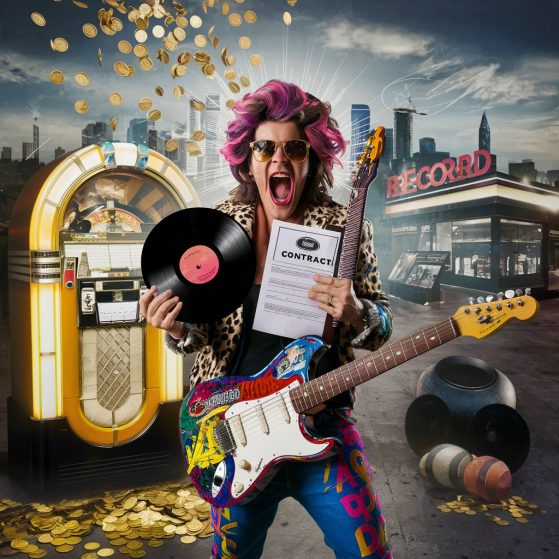
The primary advantage of having copyrighted music is the invaluable protection it offers. Copyright law safeguards your music from being used without your permission, thus affirming your legal ownership. This entails your absolute right to reproduce, distribute, perform publicly, display and adapt your work. With a copyright in place, you can take legal action against anyone trespassing on these rights, ensuring that your artistic creation gets the respect it deserves.
Financial Gains
Financial reward is another significant benefit you stand to gain from copyrighting your music. As the legally recognized owner of your work, you have the exclusive right to monetize it. This can be achieved through selling copies, licensing your music for films, commercials or video games, or earning royalties from radio, television, live performances and streaming services. Essentially, copyright law provides a framework within which musicians can profitably exploit their creative works.
Promoting Creativity and Innovation
Lastly, copyrighting music contributes to a robust creative ecosystem by fostering creativity and innovation. Its presence encourages musicians to continue creating unique work, knowing that their efforts will be protected and possibly rewarded. This not only benefits the musician’s craft but also enriches the cultural fabric of society as a whole. Simultaneously, it discourages plagiarism, ensuring that every artist’s unique voice is heard and celebrated.
Steps to Copyright Your Music
Create or Write Your Original Music
The very first step to copyrighting your music is creating an original piece. This includes song lyrics, melody, rhythm, and harmony, that you’ve put together yourself. An instrumental piece or a full-song with lyrics both qualify for a copyright. Remember that you cannot copyright an idea or concept, only the specific and tangible expression of that idea or concept in your music.
Record the Composition
Copyright law protects recorded music, so making a recording of your original composition is the key second step. This can be done with a simple audio recording device or software and does not necessarily require professional studio recording. Whether it’s a basic acoustic version recorded on your phone or a polished studio track, having the music in some physical or digital form is essential to establish a copyright.
Register Your Music with the U.S. Copyright Office
To officially copyright your music, you need to register it with the U.S. Copyright Office. You can do this online through the Electronic Copyright Office (eCO) website, or by mail with Form CO. The application will require you to provide information about the work and its creators and to upload a copy of your music. There is also a fee involved in registering a copyright, which varies depending on the method you use to apply.
Keep in mind that while registration is not technically required to hold a copyright (as your work is under copyright protection the moment it is recorded), registering your work with the Copyright Office provides public record of your copyright and is necessary if you ever want to take legal action against someone for copyright infringement.
NOTE: The process may vary in countries other than the United States, so musicians should seek advice in their own jurisdiction.
Navigating the Challenges in Music Copyright
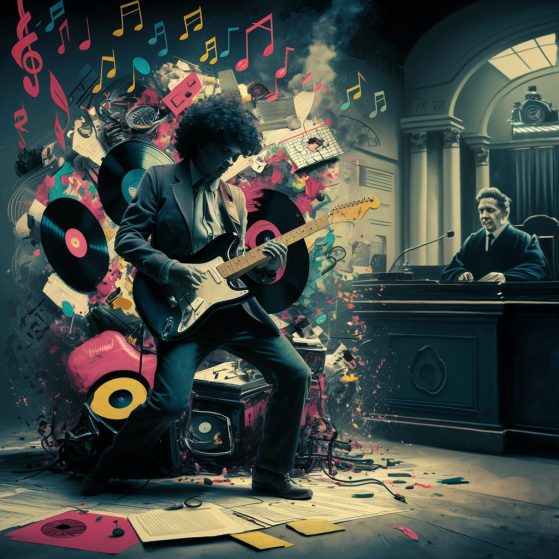
Understanding Music Copyright Basics
Navigating the world of music copyright requires first a solid understanding of its foundational aspects. In essence, music copyright is an intellectual property right that protects original works of authorship, including songs and their compositions. When you create a piece of music, you automatically hold copyright over it. This copyright gives you exclusive rights to reproduce and distribute your work, create derivative works, and perform or display your work publicly.
Recognizing Common Challenges and Legal Pitfalls
One important challenge in music copyright is unauthorized use or infringement. This can occur when someone uses, reproduces, or performs your copyrighted work without permission. It’s worth noting that copyright infringement isn’t always easy to prove; you must demonstrate that the alleged infringer had access to your work and that the infringing work is substantially similar to yours.
Another common pitfall is understanding fair use, a legal doctrine that allows limited use of copyrighted material without permission from the owner. The line between copyright infringement and fair use can often be blurred, making it tricky for musicians to navigate.
Tackling Challenges with Proactive Solutions
Overcoming challenges in music copyright requires proactive measures. Firstly, consider registering your music with the Copyright Office; while not necessary, this provides legal evidence of your ownership and makes it easier if you need to take legal action.
For dealing with possible infringements, consider setting up Google Alerts for your song titles or lyrics. This allows you to keep track of where and how your music is being used online. Additionally, working with a knowledgeable entertainment lawyer can help guide you through potential pitfalls and complexities.
Finally, educating yourself about your rights and staying updated on copyright law changes is crucial. This will not only empower you, but also help ensure that your creative work is protected.
Protecting and Managing Your Music Rights
Understanding Your Music Rights
Before you can protect your music rights, it is crucial to understand what they are. In general, music rights include the rights to reproduce, distribute, display, perform the work publicly, and make derivative works based on the original work. These rights provide musicians with control over their work and the ability to earn revenue from it. Copyright laws typically protect these rights for a certain period after the creator’s death.
Securing Your Rights: Copyright Registration
One of the most effective ways to protect your music rights is by registering your work with the proper authority, which in many countries is the copyright office. Although copyright is automatically granted to the creator at the time of creation, formal registration provides a public record of your claim and is necessary if you want to bring a lawsuit for copyright infringement.
To register, you’ll need to complete an application form, pay a fee, and send a non-returnable copy or copies of the work to be registered. Having this legal backing can be invaluable if disputes arise regarding the ownership or usage of your music.
Music licensing and Royalty Collection
Another essential aspect of managing your music rights involves licensing your music. This allows others to legally use your work while ensuring that you receive royalties each time your music is performed, reproduced, or sold. There are several types of licenses including mechanical licenses, performance licenses, sync licenses, and print licenses, each covering different usages of your work.
Working with a reputable performing rights organization (PRO) can help in collecting these royalties both domestically and internationally. PROs monitor performances and broadcasts of your music, collect royalties on your behalf, and distribute them to you. Joining such an organization can greatly simplify the royalty collection process and extend your reach into markets you may not have access to individually.
Looking for a trusted and knowledgeable agency to help market your music career?
Contact us at + 1 626 872-5151 or info@flourishprosper.net
Or Checkout our website at flourishprosper.net

